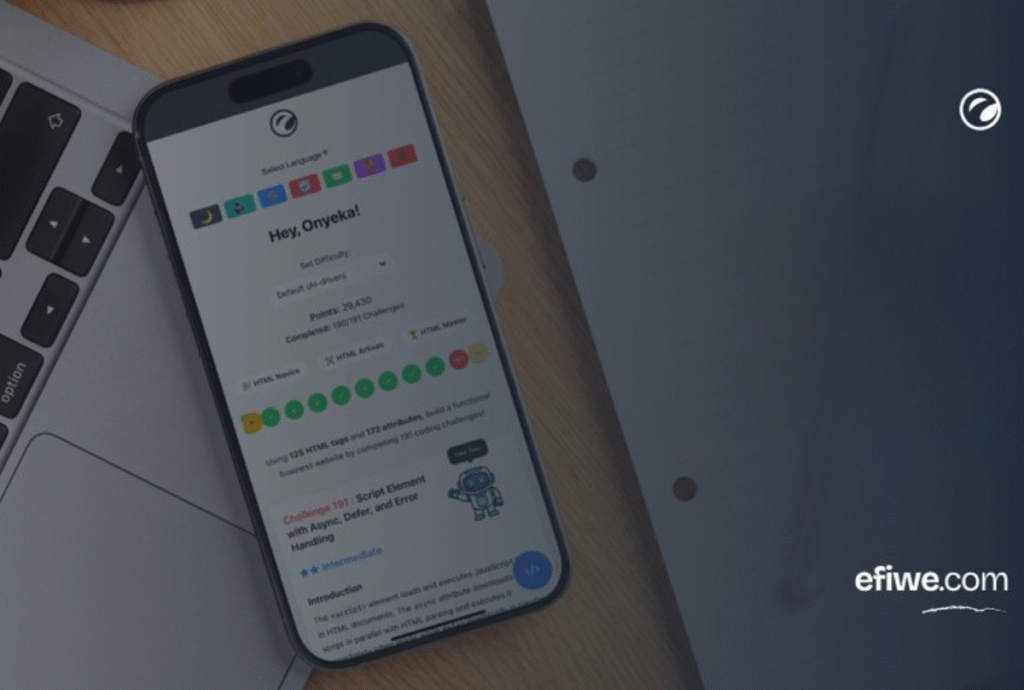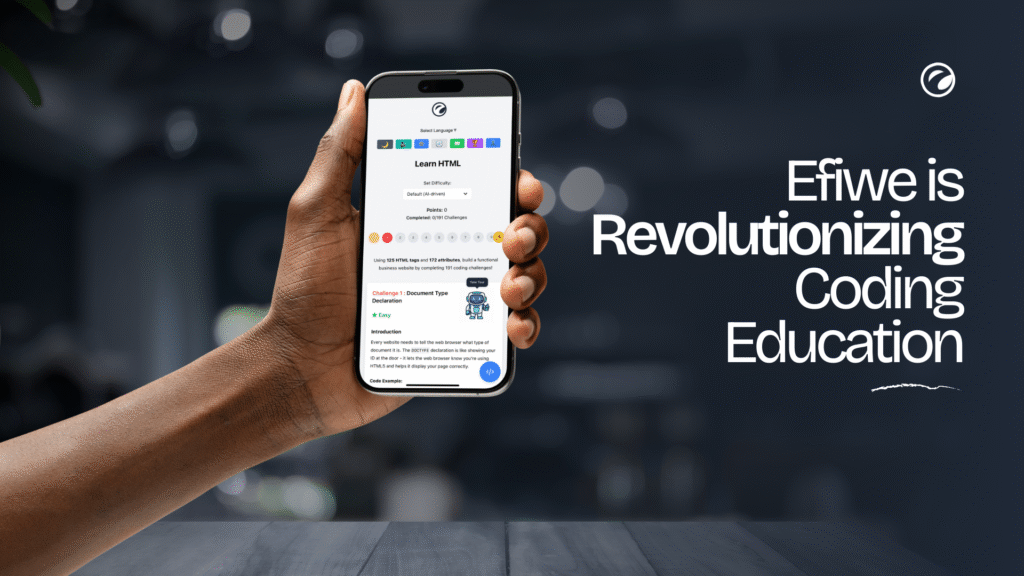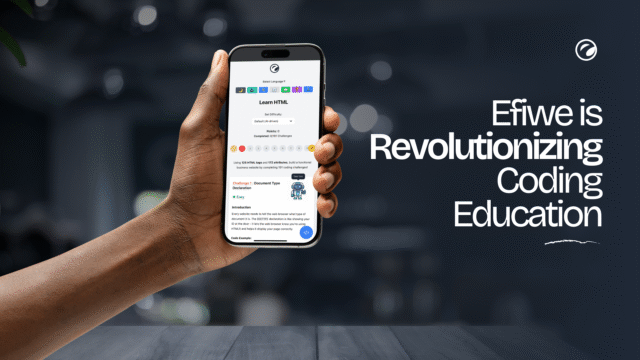In today’s fast-changing tech world, access to digital skills is no longer a luxury — it is survival. Yet, millions of people, especially in developing regions, are still shut out from opportunities in technology because of poor internet, a lack of infrastructure, or expensive tools. On 16 August 2025, Nigerian-founded Efiwe stepped into that gap with the launch of its mobile-first, AI-powered coding platform, built to make coding global, inclusive, and accessible.
Within just 24 hours of its debut, the app had already attracted 188 users from 37 countries. That kind of immediate global traction shows one thing clearly: the hunger for coding skills is universal, and people are ready for simpler, more inclusive ways of learning.
Unlike many coding platforms that assume every learner owns a laptop and has steady Wi-Fi, Efiwe starts from the phone in your hand. The platform transforms smartphones into complete coding classrooms. Users don’t just watch tutorials — they learn by doing through interactive challenges, AI guidance, and gamified experiences that build confidence step by step. Even more impressive, learners can use the app to build working websites directly from their phones.
Table of Contents

Learning Without Barriers: Offline, Mobile, and Multilingual
One of the most powerful aspects of Efiwe is its offline-first design. Once installed, the app works without constant internet connection. For many learners across Nigeria, Africa, and other parts of the world where data is costly or network is unreliable, this is a game-changer.
The platform also supports 33 different languages, breaking away from the dominance of English-only coding platforms. By providing tutorials and explanations in multiple tongues, Efiwe ensures that coding is no longer an intimidating foreign skill — it is something you can learn in your own language, on your own terms.
Speaking at the launch, founder Chidi Nwaogu explained the vision:
“We built Efiwe as a tool for inclusion. By making it mobile-first and offline-ready, we are empowering learners in regions where internet access is limited or costly. This is proof that technology can bridge the global digital divide.”
That mission-driven approach sets Efiwe apart. It is not just about teaching HTML or syntax; it is about reshaping access to opportunity.

Inside Efiwe: From HTML Basics to Full Websites
At launch, Efiwe focuses on teaching HTML, the backbone of web development. The learning pathway is structured as a series of practical challenges — each one guiding the learner from the simplest tags to complex page structures. This method ensures that every skill learned is tested immediately and applied in a real-world context.
What’s more, the app is not static. Efiwe has already announced that CSS and JavaScript modules will be added soon. That means learners won’t stop at HTML but will grow into building interactive, fully styled websites — all from their mobile devices.
The secret sauce behind the platform is the AI tutor. Instead of only flagging mistakes, the AI analyses a learner’s progress, points out weak spots, and gives personalised hints. For example, if you repeatedly forget how to close a tag, the AI won’t just correct you; it will adapt your next lessons to reinforce that concept until you master it. This adaptive learning model makes the experience feel less like a rigid course and more like having a patient teacher by your side.
By combining gamification with adaptive AI, Efiwe keeps learners motivated. Progress badges, unlockable challenges, and clear milestones turn what can often feel like a difficult, technical subject into an engaging and enjoyable journey.
A Global Gateway to Digital Skills
Efiwe’s rapid adoption across 37 countries within a single day shows its true potential: it is not just a Nigerian or African solution — it is a global learning gateway. From Lagos to London, Nairobi to New Delhi, learners are embracing the opportunity to code without the barriers of cost, language, or infrastructure.
In many ways, the timing couldn’t be better. The demand for software developers continues to rise worldwide. Reports show that careers in data science, software engineering, and system design are among the fastest-growing. Yet, traditional education systems in many regions are too slow or too expensive to keep up with demand.
This is where Efiwe steps in as a bridge between ambition and opportunity. A student in Kano who has never touched a laptop can, with just a smartphone, begin the journey to becoming a web developer. A young woman in rural Kenya can practice coding offline in her local language, building the confidence to enter the digital workforce. A professional in India can learn new skills during short breaks at work, entirely from a phone.
Efiwe’s vision is not just to teach individuals — it is to democratise digital skills globally. By making coding accessible in the simplest, most mobile form possible, the platform is positioning itself as a tool that can reshape the future of education and work.

Conclusion
The launch of the Efiwe mobile AI platform for coding accessibility is more than just a tech product release — it is a statement. A statement that digital skills should belong to everyone, not just the privileged few with laptops and steady internet. A statement that learning should fit into people’s lives, not the other way around.
With its mobile-first approach, offline functionality, multilingual support, and AI-driven learning experience, Efiwe has the potential to transform how coding is taught and who gets to participate in the global digital economy.
If early adoption is anything to go by, this platform is set to empower millions — one smartphone, one learner, one line of code at a time.
Join Our Social Media Channels:
WhatsApp: NaijaEyes
Facebook: NaijaEyes
Twitter: NaijaEyes
Instagram: NaijaEyes
TikTok: NaijaEyes





